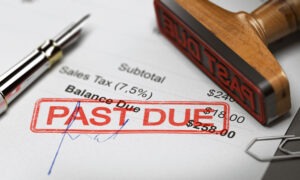
Debt collection is vital for maintaining your company’s financial health and stability. Timely collection of outstanding payments allows you to maintain cash flow and meet your financial obligations.
But what if you’re struggling to collect payment from your clients? Maybe they’re facing financial difficulties, avoiding communication, or disputing the charges. In such cases, it’s vital to balance recovering the funds owed and preserving customer relationships.
To help you navigate this delicate process, here’s a six-item guideline for improving your debt collection practices. You can minimize potential negative impacts on your company as you go through it. Read on to discover how to manage debt collection effectively while preserving customer relationships:
- Communicate Clearly And Professionally
The first step in maintaining good customer relations during debt collection is communicating clearly and professionally with your clients. This means using a ‘how to collect money from client format’ that is polite, concise, and easy to understand. For example, when sending a payment reminder, use a friendly tone and provide all the necessary information, such as the invoice number, amount due, and payment deadline.
But what if a client becomes defensive or upset? Staying calm and composed is important by keeping your emotions in check and sticking to the facts. Doing so can prevent the situation from escalating and damaging your business relationship.
Consider this example: A small business owner had a client who was consistently late with payments. Instead of becoming confrontational, the owner approached the client calmly by offering a mutually agreeable solution. The client appreciated the understanding and was more cooperative in making future payments.
- Offer Flexible Payment Options
Aside from professional communication, showing empathy for your client’s financial situation is crucial. Imagine you’re an entrepreneur running a startup catering to other businesses. One of your long-term clients is experiencing cash flow issues. How can you maintain a good customer relationship while recovering the outstanding debt? The answer is simple: offer flexible payment options.
In that case, offer installment plans to make the amounts more manageable over a set period. Likewise, provide discounts for early payments. You may encourage clients to pay their invoices early by offering a small discount. By showing that you’re willing to work with your clients, you can create a win-win situation for both parties.
- Stay Informed About Legal And Ethical Guidelines
Staying informed about legal and ethical guidelines is essential to maintain good customer relations. Get familiar with the Fair Debt Collection Practices Act (FDCPA) and any state-specific regulations that apply to your business. Did you know that the FDCPA prohibits debt collectors from making false threats or calling clients at unreasonable hours?
Imagine a business owner needing clarification about the legal guidelines for debt collection. By researching the FDCPA and state-specific regulations, they can ensure that their debt collection practices comply with the law. This way, they maintain trust and credibility with their clients, even during debt collection.
- Listen And Understand The Client’s Situation
As you attempt to collect outstanding payments, listening to and understanding the client’s situation is essential. This means actively listening to their concerns and asking questions to understand their financial circumstances better. For instance, if a client explains that they are experiencing cash flow problems due to a delayed payment from a customer, try to empathize with their situation and explore possible solutions together.
By demonstrating empathy and understanding, you can maintain a positive relationship with the client while still working towards resolving the outstanding debt. This approach can also help you identify potential issues early on, allowing you to address them proactively and minimize the impact on your business.
- Maintain Accurate And Up-to-Date Records
In addition to considering your client’s situation, you must keep accurate and up-to-date records to maintain good customer relations during debt collection. This means tracking all client communication, including emails, phone calls, and meetings, and documenting payment agreements or arrangements. For example, if a client agrees to pay their outstanding balance in installments, note the agreed-upon terms and payment schedule in your records.
Maintaining thorough records ensures that both parties are on the same page and avoids misunderstandings or disputes. Additionally, well-organized documentation can be invaluable in case of a legal issue or if you need to escalate the debt collection process.
- Know When To Seek Professional Assistance
Finally, it’s important to recognize when it’s time to seek professional assistance for debt collection. If you’ve exhausted all available options and the client still needs to pay, it may be necessary to enlist the help of a collection agency or attorney. For instance, consulting with a professional may be in your best interest if a client consistently ignores payment reminders and refuses to communicate.
Knowing when to seek help can protect your business interests and preserve your reputation while maintaining good customer relations. Remember, the goal is to recover the outstanding debt while minimizing any potential negative impacts on your business.

Striking The Perfect Balance In Debt Collection
Your approach to debt collection is crucial in shaping customers’ perceptions of your business. By treating them with respect, you lay the groundwork for lasting business relationships.
Now that you’re equipped with these insightful tips, refine how you approach your clients. Your brand image and bottom line will thank you for it by keeping your business afloat.


































